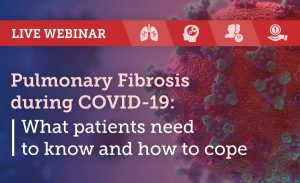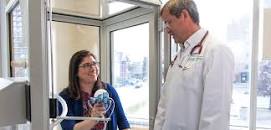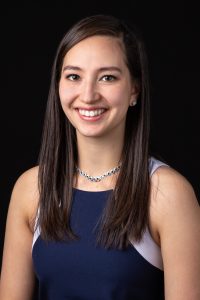Message from the Board Chair Kirk Morrison

Just thought I would let everyone know, that despite the pandemic, the CPFF Board of Directors have been very active this spring. Our fiscal year ends on July 31, so to that end, we held a virtual, two-day Board retreat in early May where we developed priorities for next year. As well, at last week’s monthly Board meeting (again done virtually), we approved our annual budget.
Our balance sheet is in good shape, so in light of the times, we’ve decided to up our spending and investment in both our PF community, and the organization. On top of continuing to fund new research fellowships and projects, we will be updating both our website, and our communications systems and materials (e.g.: patient guidebooks, pamphlets etc.) in order to better support our community and raise awareness about PF.
As well, in a year in which we expect travel opportunities to continue to be limited, we intend on holding a virtual National PF Summit, which will allow everyone the opportunity to attend and interact with each other. In addition, we will enhance our activities and outreach during PF Awareness Month in September, including making the Clarke Walk a national event, all in the name of raising awareness about PF.
We also expect to provide additional support and resources to our growing number of Patient Support Groups across the country. Through the success of the Clarke Walk in 2019, the Clarke family have graciously supported directing some of the event proceeds to providing individual Zoom packages to all Patient Support Groups. This will allow you to better connect and extend your reach within your individual communities. Support Group leaders can expect to hear from Sharon shortly on how we will make this happen.
On a personal note, PF hit really close to home with my Mom’s passing in late February. While we haven’t been able to hold her funeral because of the pandemic, my Mom got me involved in CPFF, and so in her memory I want to make sure that we do everything that we can for our PF community. Thanks to everyone for your kind words and support. Remember, we are here for you, and so we always appreciate your feedback on activities, priorities and focus.
Take care and stay safe!
Kirk
Second webinar to help you deal with PF during the pandemic

About 280 people joined the CPFF live webinar Pulmonary Fibrosis during COVID-19: What patients need to know and how to cope, on May 11, featuring two members of CPFF’s Medical Advisory Council: Drs. Shane Shapera and Meena Kalluri. You can see and hear their recorded presentations, as well as their responses to the audience’s questions from your own home, anytime. Visit the COVID-19 section of the CPFF website, where you’ll find a variety of resources to help you manage during the pandemic.
Dr. Shapera, Director, Interstitial Lung Program, Toronto General Hospital, UHN, began by addressing the uncertainties surrounding the COVID-19 pandemic and how we are all learning at the same time – doctors and their patients. “The ‘right’ thing to do in uncertain times is a balance of risks and benefits that each person or family has to decide for themselves,” he says.
He explained the meaning of some of the terms we’ve all been hearing, such as pandemic and coronavirus, which is a family of viruses that cause a range of human infections from the common cold to Severe Acute Respiratory Syndrome (SARS.)
Dr. Shapera spoke about how our bodies respond to viruses, going through two stages of immunity: innate and adaptive. Innate immunity begins right away as a reaction to every virus. Adaptive immunity takes time and targets the particular virus, creating antibodies. Sometimes, “the innate immunity response goes wild, usually between five and 10 days after exposure, and fires off cannon balls, rather than gunfire, to fight the virus,” he explains. “This is called a Cytokine storm and can cause severe illness.” This overreaction of the immune system seems to be more common with COVID-19. Dr. Shapera mentioned that this is likely what happened to British Prime Minister Boris Johnson, when he was admitted to intensive care seven days after testing positive for the virus.
Dr. Shapera also addresses what you need to know about the wearing of masks, testing for COVID-19 and where we are in the pandemic; graphs with this last information can be found here. He then outlined how you can catch COVID-19. “The virus spreads through close contact, person-to-person, by inhaling respiratory droplets produced when an infected person coughs or sneezes,” he said. “And a person is considered a close contact, when they have spent more than 10 minutes with an infected person, who is not wearing a mask, at a distance of less than six feet, or two metres.”
As for treatments, most people are advised to recover at home, doing the same things they would do if they had the flu: rest, drink plenty of fluids, and take over-the-counter medications to alleviate symptoms. For those who need hospitalization, there is “supportive care,” says Dr. Shapera, “which may involve monitoring of symptoms, IV fluids, positioning and oxygen therapy. Some people may need a ventilator.” Several drugs are being currently being studied as COVID-19 treatments, as well as some biologic products such as blood plasma from recovered patients. To date, none of these has been proven effective.
Dr. Shapera, along with a number of researchers from across the country recently published a special feature in the Journal Chest, “Practical considerations for the diagnosis and treatment of fibrotic interstitial lung disease during the COVID-19 pandemic.” Written for physicians, you can find a link to the article near the end of the Helpful Links page of the COVID-19 section of www.CPFF.ca.
Dr. Meena Kalluri, Director, Multidisciplinary ILD Clinic, Alberta Health Services, switched gears to address coping with life during the pandemic. She turned to Canadian astronaut Chris Hadfield for his take on how to cope with fear: “for me the absolute key is to separate danger and fear. They are not synonymous. They are not the same thing.
“The danger is understandable. It’s comprehensible. It’s being dealt with and the authorities are striving to come up with all of the different types of scientific and societal interventions to decrease the danger. That’s all being done.
“But at an individual level, I think you really owe it to yourself to not just get overwhelmed by all the noise.”
Dr. Kalluri stressed how fear is counterproductive to PF patients, or anyone else for that matter. The fear response can lead to worsening symptoms such as difficulty breathing, cough, fatigue, chest pain and generalized pain. Worsening symptoms can lead to worsening fear, spiraling into a cycle that can lead to panic. Fear can worsen blood pressure, diabetes and heart disease. It can deepen depression and anxiety and disturb our sleep. All leading to a poor quality of life.
“While fear is unavoidable, we can adapt and lessen its impact, by building resilience,” says Dr. Kalluri. She describes four steps in a “roadmap to building resilience.”
- Build connections. Keep in touch with family, friends and colleagues virtually. Schedule regular online meetings or phone calls. Participate in online activities, such as CPFF support groups.
- Foster wellness. Take care of yourself, physically, mentally, emotionally and spiritually. Exercise regularly, eat well and get your rest. Stay informed in moderation, using reliable sources. (See COVID-19 section of the CPFF website for helpful links to reliable information sources.) Take breaks from the news and social media. Connect virtually to faith-based or support groups. Find inspirational and meditation resources online.
- Find purpose. Set realistic goals and plan your days. Undertake creative projects. Focus on practical actions that you can achieve to prepare for a health crisis.
- Embrace healthy thoughts. How you think affects how you feel, which can affect your breathing. Be kind to yourself and forgive others. Smile more, it will affect your outlook. Maintain hope. It can be difficult some days, but it is very important.
Dr. Kalluri also addressed the practical considerations of dealing with the pandemic, such as getting in touch with your specialist about ongoing testing, appointments and medication supplies. Communicating with your oxygen supplier about your needs and how they will be fulfilled. Making a contact list is helpful too, so you, or your care partner, are prepared to reach out as needed.
One of Dr. Kalluri’s patients suggested having a “COVID-19 hospital bag” prepared, in case you become severely ill with the virus, or experience any other health crisis that requires hospitalization. Along with electronic devices, toiletries, and clothes, it should include your written plan for advanced care. Dr. Kalluri shares this suggestion now with all of her patients.
“Having an advanced care plan is beneficial for everyone, not just those with PF, or those at risk during the pandemic,” says Dr. Kalluri. “Among other things, it can ensure you receive the care that reflects your wishes and it can decrease family stress and conflict.”
You can read more about how an advanced care plan can be a gift to your family in an article in the May 2020 issue of this newsletter Hope Breathes Here. You can also visit the Speak Up website, which has plenty of tools and resources to help you create your plan.
The May webinar wrapped up with a brief question and answer period, addressing such things as a possible vaccine and who is most likely to become very ill if they catch the virus. Overall, the doctors advised listeners to be cautious, but not obsessive, in dealing with the virus. “For the time being it’s something we’re all learning to live with,” says Dr. Shapera.
And as for a summer vacation, he advises against international travel and staying closer to home. “We live in a country with beautiful scenery, and our virus rates are relatively low. I’d suggest enjoying both of those things, here at home.”

Last month, Health Canada approved the use of nintedanib (OFEV®) in patients with a broad range of progressive fibrosing interstitial lung diseases (ILDs) other than idiopathic pulmonary fibrosis (IPF). The drug has been used to treat IPF patients in Canada since 2015.
Interstitial lung diseases (ILDs) encompass more than 200 disorders that can lead to irreversible scarring of lung tissue, negatively impacting lung function. An estimated 18 to 32 per cent of patients with ILDs will develop a progressive fibrosing course of the disease. This new indication now makes OFEV® available for patients with progressive fibrosing ILDs in which lung fibrosis continues to worsen.
Results from phase three of the INBUILD clinical trial, which studied the efficacy of nintedanib in a broad range of fibrosing lung diseases, showed that OFEV® slowed the rate of lung function decline by 57 per cent across the overall study population.
“Progressive fibrosing ILDs have a significant impact on patients, including worsening lung function and lessening quality of life,” says Dr. Martin Kolb, a respirologist at St. Joseph’s Healthcare Hamilton, Director, Division of Respirology at McMaster University, and clinical investigator in the INBUILD® trial. “With this new indication, we now have a therapeutic option to help improve outcomes in ILD patients across the spectrum.”
Melissa Sulpher, 39, has PF as a result of chronic hypersensitivity pneumonitis and participated in the INBUILD clinical trial. The positive results of the trial, along with her own experience, has given Melissa new hope that her slowing decline may give her time to benefit from new treatments and medical advances.
“I’m very lucky that I had the opportunity to be part of the clinical trial for OFEV®. No, it hasn’t cured me. It might seem anticlimactic, or less impressive, but this couldn’t be further from the truth,” says Melissa. “As much as I have limitations now, any more progression in my disease, each percentage I lose, is another limitation in my life. So I can assure you, it’s a very big deal and reason to celebrate if I can keep my lungs where they’re at right now.
“The Canadian Pulmonary Fibrosis Foundation (CPFF) is pleased to see a treatment for patients with progressive fibrosing ILD (PF-ILD),” says Sharon Lee, Executive Director, CPFF. “Canadians living with progressive ILDs now have a therapeutic option and the hope it brings to focus on life beyond their diagnosis.”

When respirologist Stacey Lok was in her first year of medical school in Saskatchewan, her grandfather passed away from pulmonary fibrosis. At the time, she had a limited understanding of the disease. He was misdiagnosed with chronic obstructive pulmonary disease, and an appropriate diagnosis was delayed until his condition was quite severe.
“As I went through my medical training, I realized that this situation was unfortunately not an isolated occurrence,” says Dr. Lok. “This understanding highlighted the need for further education and proper diagnosis in the field of interstitial lung disease (ILD) to allow for proper therapy including early palliation when appropriate. This experience has driven me to pursue a career dedicated to the care of patients living with ILD.”
Dr. Lok is mid-way through her one-year, $90,000, CPFF Robert Davidson Fellowship at the University of Calgary, working with Drs. Charlene Fell and Kerri Johannson in the University of Calgary Interstitial Lung Disease Program. As a clinical research fellow, Dr. Lok spends about 20 per cent of her time caring for ILD patients, gaining valuable ILD clinical experience. She also participates in multi-disciplinary discussions concerning patient care, gaining skills in collaborative complex care, working with expert clinical, radiology and pathology colleagues. Each month she provides a multidisciplinary clinic with a Rheumatologist for patients with ILD caused by rheumatological conditions. In addition, Dr. Lok plans to make a presentation, likely via Zoom, to the Calgary PF support group during her fellowship.
The bulk of Dr. Lok’s time, about 80 per cent, is devoted to research. Her main research project is titled: “Malignancy Risk Associated with the use of Mycophenolate Mofetil in Interstitial Lung Disease.” Mycophenolate mofetil is a medication used to treat various forms of ILD such as hypersensitivity pneumonitis, which is triggered by an environmental exposure, and ILD secondary to autoimmune diseases, such as scleroderma, rheumatoid arthritis, lupus and myositis. It is not used to treat IPF.
“This medication is known to increase the risk of cancer when used as an anti-rejection therapy following organ transplants,” says Dr. Lok, “But ILD patients are different. I’m investigating the cancer risk of mycophenolate mofetil in ILD patients.”
Dr. Lok will be using the Canadian Registry for Pulmonary Fibrosis (CARE-PF) database to analyze the risk of cancer for people with ILD, who have received Mycophenolate Mofetil across Canada. “I believe this is an important clinical question to help our patients with ILD weigh the benefits and risks of this therapy and for our clinicians to be able to counsel patients on cancer risk with the appropriate data. So far, she and her colleagues have been reviewing the database to add the information needed, including new or recurring cancers, for the analysis for this study. The study should be complete and ready for publication next year. (Editor’s note: We’ll let you know the results of this study when they are available, in this newsletter.)
Dr. Lok has also been collaborating with Dr. Veronica Marcoux of Saskatchewan (a previous CPFF fellow), who under the supervision of Dr. Kerri Johannson, is studying prescribing patterns of medications used to treat rheumatoid arthritis-related ILD across Canada. “There is a lack of data regarding which treatments to use at what times and therapies can be quite individualized and affected by provincial drug coverage,” says Dr. Lok. The researchers will also be investigating the effect of these therapies on lung function over time.
Dr. Lok plans to return to Saskatoon this fall and work with Dr. Marcoux, who is currently the only ILD specialist in the province. There is still a significant need for additional support given an estimated 3,325 patients with ILD in the province. One of the aims of the CPFF fellowship is to train ILD specialists to increase access to care across the country.
“I will aim to contribute to the growth of a well-established multidisciplinary ILD program dedicated to the care of these patients, in an underserved area,” says Dr. Lok. “I would like to develop a pulmonary rehabilitation program with an educational component focused on ILD patients. Another of my goals is the creation of an interdisciplinary palliative team focused on improving quality of life and eventual end of life care for ILD patients.”
Most of Dr. Lok’s life and training to date has been spent in her home province of Saskatchewan. All of her post-secondary education was at the University of Saskatchewan in Saskatoon. Her husband Arjunn is still living in Saskatoon, while she is working in Calgary. They were initially commuting back and forth regularly to visit on weekends, however once the COVID-19 pandemic occurred their visits were put on hold.
The COVID-19 pandemic, has had quite an impact in Calgary. Dr. Lok admits, “it’s been challenging to co-ordinate care for our patients by telephone and to virtually ensure our patients still receive quality care and access to reliable information regarding their respiratory health during this difficult time.” There has also been a lot of planning to do to meet the potential demands of an influx of COVID-19 patients to the hospital.
“Overall, the first six months of my fellowship have been very rewarding and educational,” says Dr. Lok. “I’ve been collaborating with experts and researchers in ILD across the country, which I can continue to access when I return to Saskatchewan, and use for the benefit of my patients. I’d like to thank the CPFF for making this year of training possible.”
Check out our three new videos

As the COVID-19 pandemic drags on, and many of us are still isolated at home, we’ve got three, new short videos that may just the boost you need to help you get through the next day, week, or month.
Each one tackles a component of well-being in five to 16 minutes to help you make the most of your days at home and better manage your PF during the COVID-19 pandemic.
Managing anxiety during COVID-19 (five minutes)
Registered nurse and certified respiratory educator Karen Beaton guides you through how to control your reactions to the isolation and anxiety of the global pandemic. She shares some practical ways to overcome negativity such as reframing our reactions, setting daily goals, making a schedule and seeking professional help when needed.
Eating well during COVID -19 (five minutes)
Cheryl Smit, a respiratory therapist specializing in pulmonary fibrosis, shares some tasty nutrition tips to help you be your best self every day, even during this uncertain time. She’ll tell you how to: Prep it up; pump it up; spice it up; shake it up and drink it up! Enjoy.
Working out at home during COVID-19 (16 minutes)
You might be finding it difficult to maintain the regular exercise required to keep your lungs healthy due to recent social distancing measures. In this video, Meeran Manji, a registered nurse who specializes in care for people living with lung disease, walks through a series of light exercises that you can do from the safety of your home to maintain lung health during the pandemic.
CPFF is grateful to our sponsor Hoffmann-La Roche Ltd. for supporting the creation of these resources for the PF Community in Canada.
Gearing up for PF Awareness Month during the pandemic

September is Pulmonary Fibrosis Awareness Month, when we band together to increase awareness of PF in communities across the country. In these times of COVID-19, with many people experiencing the breathlessness that can be a symptom of this virus, our stories of life with PF should resonate even more strongly with the media, governments, and the public.
While some of our usual events and activities will no longer be possible in person, due to physical distancing requirements, many of them will be adapted to accommodate such restrictions or take place virtually. We will stand together in spirit, even though we will remain apart physically.
We’re also looking at outreach activities to spark awareness beyond our PF community. “One of the things I often hear is that no one knows about pulmonary fibrosis, beyond those directly affected,” says Sharon Lee, CPFF’s Executive Director. “PF Awareness Month is our opportunity to spread the word about the condition and how others can help our community.”
 Some awareness initiatives will be the same as last year, although adapted to accommodate physical distancing. The Blow Bubbles for Pulmonary Fibrosis campaign will continue in 2020, with gatherings limited to household groups.
Some awareness initiatives will be the same as last year, although adapted to accommodate physical distancing. The Blow Bubbles for Pulmonary Fibrosis campaign will continue in 2020, with gatherings limited to household groups.
A fun and easy way to get involved, this activity has you and your family blowing bubbles, then posting pictures and/or videos onto your own Facebook page and the CPFF Facebook page in September. Use with the hashtag #CPFFBubbles. Share your story of who you are blowing bubbles for, by sending your story and pictures to [email protected].
Contact media in your community asking them to broadcast, write about, and take pictures of you and your household blowing bubbles and raising awareness of pulmonary fibrosis.
CPFF is once again asking its supporters to request the lighting of community landmarks in September to promote Pulmonary Fibrosis Awareness Month. Sports facilities, clock towers and town halls are often able to be lit up for charitable purposes. Now is the time to check with your community about lighting a landmark in red and blue for Pulmonary Fibrosis Awareness Month.
Most such requests are made online. Please be sure to let Sharon Lee [email protected] know about the requests you have submitted for her to keep track of the requests, as only residents of the community can make these requests. You can find the information you need to complete such requests on our website.
Again, this year we’ll be asking various elected officials to proclaim September as Pulmonary Fibrosis Awareness Week. To accommodate COVID-19 restrictions, we will ask the Prime Minister, Premiers, Health Ministers and Mayors to send us a video of them making the proclamation. You can find a sample proclamation on our website. Once again, please let Sharon Lee know of your local requests, as only residents of the community can make these requests.
The Clarke Walk for PF usually taking place in Calgary’s Edworthy park, will take place this year as a virtual, national event, encouraging participants to walk a total of 5,150 km. – the length of Canada. We’ll be reaching out to our 20 CPFF support groups across the country to get involved and enlist their family, friends and colleagues in the endeavor. Participants will walk in their local communities over the course of a week, maintaining social distancing.
CPFF will promote all of these initiatives through our volunteer network to traditional media outlets as well as on social media outlets. In addition, we will feature some of our compelling stories in various media releases. We’ll post sample media releases on our website, that you can customize to distribute to media in your community.
CPFF encourages anyone who has their own unique way to raise awareness and funds during PF Awareness Month to share their ideas and stories with their contacts and the public. Check out how a family “Dream Team” is supporting their father and the cause, in the next article of this newsletter.
Be sure to follow us on Facebook and Twitter for updates throughout the summer on plans for PF Awareness Month and visit our website to find out how you can get in involved this year. Despite the pandemic, we can still accomplish so much for our PF community when we encourage one another remotely. There is no reason PF Awareness 2020 cannot be our best one ever!
Family “Dream Team” creates its own awareness initiative

In 2018 four adult siblings, Erica, Stefani, Oriana and Lewis created their own “Dream Team” to participate in the Toronto Waterfront Marathon to fundraise for CPFF in honour of their father Alfredo, who was diagnosed with IPF in 2016, and to help raise awareness of pulmonary fibrosis.
In the two years they took part in the event, they raised a total of $4,000. Unfortunately, this year the Marathon has been cancelled due to COVID-19 restrictions on public gatherings. What were they going to do? They didn’t want to stop their fundraising and awareness efforts.
“We set up our own GoFundMe page to continue to show support and to raise awareness about the struggles faced with having a lung disease and being immune compromised, especially during this COVID-19 pandemic,” says Erica. “We also wanted to let others know that through these difficult times there are still ways that we can come together and create change. We also realized that change can happen just one step at a time. That’s how our $1 for 1K initiative came to be.”
Called “Run, Walk, Bike for Pulmonary Fibrosis” the Dream Team’s initiative encourages others to keep active as much as they can in the coming months and to rack up kilometres at their own pace, doing an activity they enjoy. A family or an individual can make this challenge part of their daily and weekly goals. They can either challenge themselves to run, walk or bike a distance in a day, or challenge themselves throughout the week or a month. It can also be a fun way to get kids involved. And these activities can be done while maintaining physical distancing, indoors or out.
“You can share your success stories with each other and brag about the kilometres achieved through posts and tags on social media using #thedreamteam1for1,” says Erica. “We have friends that made donations when our GoFundMe page went active, and now they are determined to match their donations with kilometres. It is really heart-warming to see the involvement and determination of those around us.”
The Dream Team members send their GoFundMe page to family, friends and colleagues and encourage them to share it with their own networks. They plan to continue their initiative through to September, which is Pulmonary Fibrosis Awareness Month and they hope to raise at least $2,000.
The siblings all live in the Toronto area, as do their parents Alfredo and Lena. Alfredo is now 67 and underwent a successful, double-lung transplant last January. He remains active throughout the day and no longer needs oxygen therapy.
Erica describes her father as a very smart, hard working and a selfless person, who is always thinking of others and helping those he cares about, especially his family. “He takes pride in a hard day’s work and he taught us all the importance of that,” says Erica. “His strength is one of the things that has helped him through his journey with IPF. He has definitely been an inspiration to all of us!”
Aside from the changes to the Dream Team’s fundraising efforts, COVID-19 has impacted the family in more important ways. It has changed the ways that they can interact, much as it has for many families. The siblings are keeping their distance from their parents in an effort to keep them safe. Their mother Lena has been very diligent about minimizing any risks and has been a great support through this process, says Erica.
How are their parents reacting to their initiative? “They feel it is for a good cause and are happy to see all of us keeping active during these times,” says Erica. “They also feel positive in knowing that these initiatives help to spread awareness to others that may have not have heard of IPF, and may want to get involved in some way.”
This year, several CPFF fundraising events will be cancelled or go virtual due to COVID-19. CPFF will be asking supporters to “do their own thing” to raise funds for research, support and education for the PF Community in Canada. What advice would you give others who want to start their own fundraising initiative?
“I would suggest that you start small and let your passions and interests guide you,” Erica recommend. “We chose to focus on challenging others to be active because we are an active family ourselves. It’s easy to work towards something if you enjoy it and truly believe in it. I also suggest making use of your resources and support systems. It’s important to reach out and ask friends and family to get involved in any way they can. And through it all, we remind everyone to be mindful that IPF takes your breath away, and to appreciate every breath you take.”
You can take part in the Dream Team’s “Run, Walk, Bike for Pulmonary Fibrosis” by signing up on their GoFundMe page here. Or, consider creating your own awareness and fundraising initiative this summer, or during September 2020, for Pulmonary Fibrosis Awareness Month.


